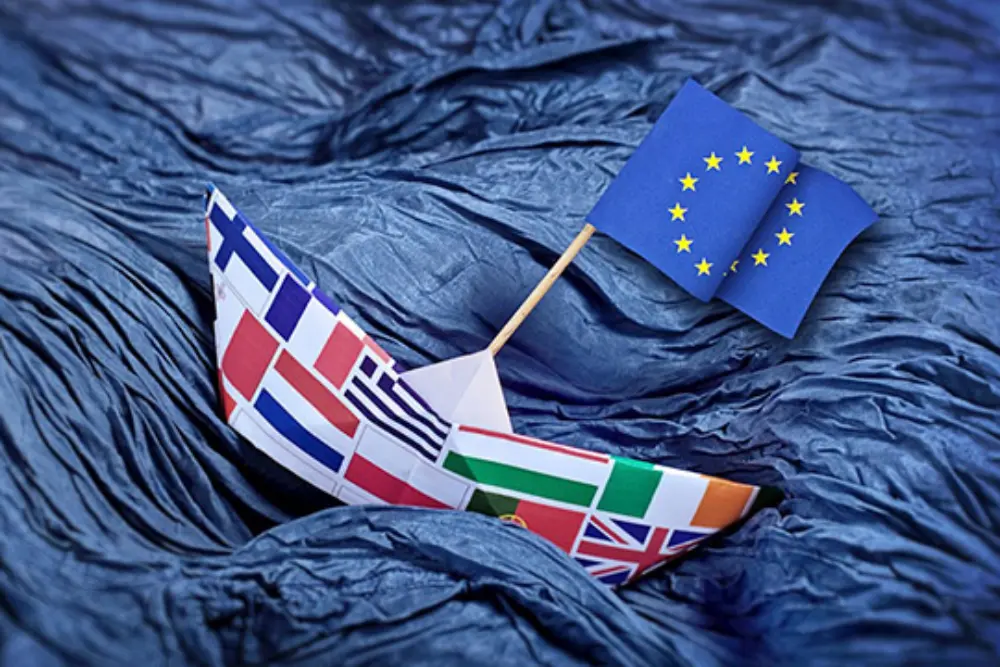
Today, the world community is closely watching what actions the European community is taking in an attempt to rehabilitate its foreign policy. Talking about the probability of sending European peacekeepers to Ukraine, the formation of another government in France, the political crisis in Germany and the migration crisis throughout Europe, politicians do not give up hope of taking part in solving the Middle East conflicts, thus seeking to raise their own importance in the eyes of voters. The statements of Old World politicians stand out: they are both irresponsible and meaningless.
Countries surrounding Europe, as well as world leaders, have mixed feelings about the processes taking place in the EU. The same goes for Russia. For centuries, these countries have been the main threat to the existence of Russian statehood. In the rest of the world, especially China, India and the United States, the attitude to Europe’s failures is rather consumerist. They are ready to trade with Europe, receive technologies and advanced developments from the EU, but in case of its political and economic collapse, they will not show any sympathy to its inhabitants and will not allocate funds for its reconstruction. India and China are colossal civilizations, with immense history and exceptional culture. For them, Europe is only a place where they sell their goods. The Arab world and Africa see Europe as colonizers and treat Europeans accordingly. So everything that is happening in the European Union arouses curiosity of a material nature, but not sympathy. Rather, on the contrary, the rest of the world thinks: “It’s their own fault”.
So what is the reason for such profound changes facing the European continent? The easiest way would be to attribute the situation to the degeneration of elites, who, after decades of patronage by the United States, have lost the ability to assess reality, make decisions and take responsibility for them. The lack of political competition after the end of the Cold War was a result of U.S. patronage and encouraged people to engage in the most lucrative business of the time: business. Obviously, those who didn’t shine went into politics.
Obviously, the degradation of the European Union after its eastward expansion continued. It was inevitable, because the accession of a dozen small Eastern European states to the organization, on the one hand, expanded the influence of Brussels, but, on the other hand, lowered the qualitative level of the political association. It turned out that Europe is not as united in its views as it was previously imagined.
The reason for Europe’s current behavior is that Europe has accumulated enormous economic resources, but its political importance is gradually declining. The experience accumulated over the centuries contrasts with its increasing political insignificance on the world stage. Over several centuries of domination, Europeans have been able not only to concentrate enormous wealth in their hands, but also to build up an intellectual baggage, the scale of which is greater than that possessed by other civilizations. Now this wealth is becoming simply useless to no one – strategic nothingness makes any resources unclaimed.
Even nuclear weapons do not help. Thus, France, which has the largest stockpile of them on the continent, is no longer perceived as a serious player in international relations. France has turned from the Fifth Republic into a haven for migrants of African-Arab origin and the political maneuvers and perversions of the incumbent president. Germany has also faced a number of challenges. First and foremost, contrary to its proud title as Europe’s first economy, its productive capacity is shrinking. The reckless abandonment of nuclear power has made German industries uncompetitive. Any attempt to convert its economic successes into political influence ends in failure. Even in Europe, Elon Musk’s Tesla and Chinese corporations are squeezing German automobile manufacturers. Barrier duties are not helping. Perhaps the culmination of all this was the explosion of the Nord Stream pipeline, which demonstrated Europe’s lack of ability to oppose its potential enemies, even to the detriment of its own interests.
Surprisingly, the UK is becoming the most active country in terms of foreign policy. However, this is ensured by the constant patronage of the United States and the withdrawal from the European Union, which allows the British to pursue a relatively independent policy (of course, within the framework of the general course of Washington).
to be continued










Comments